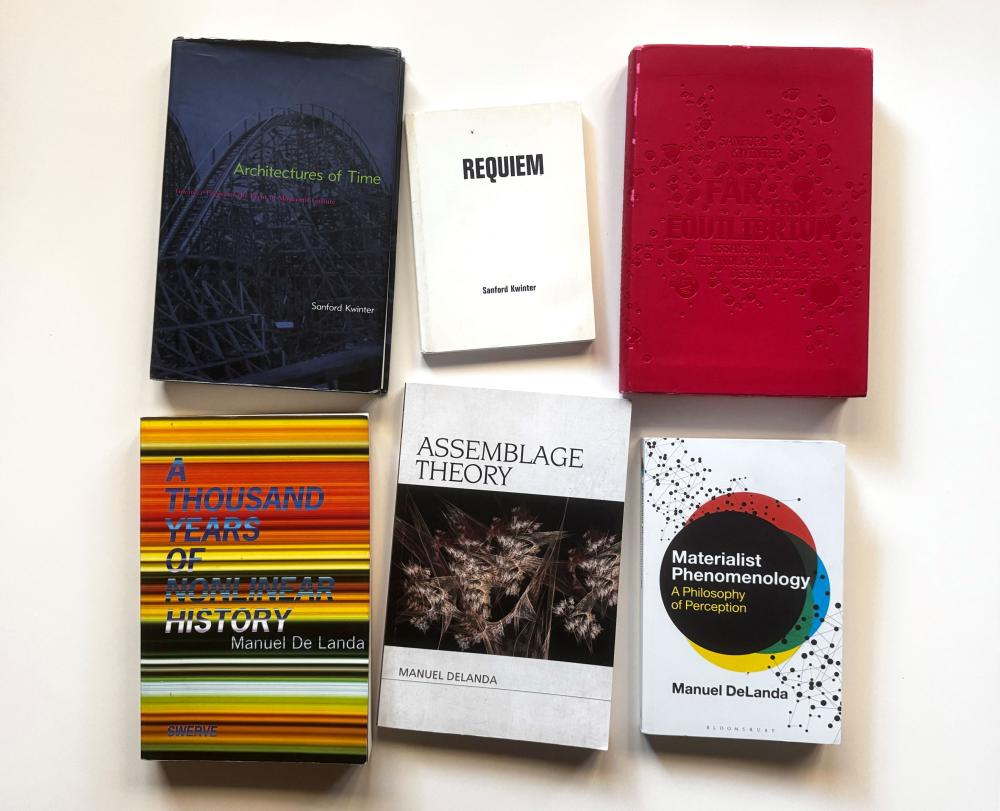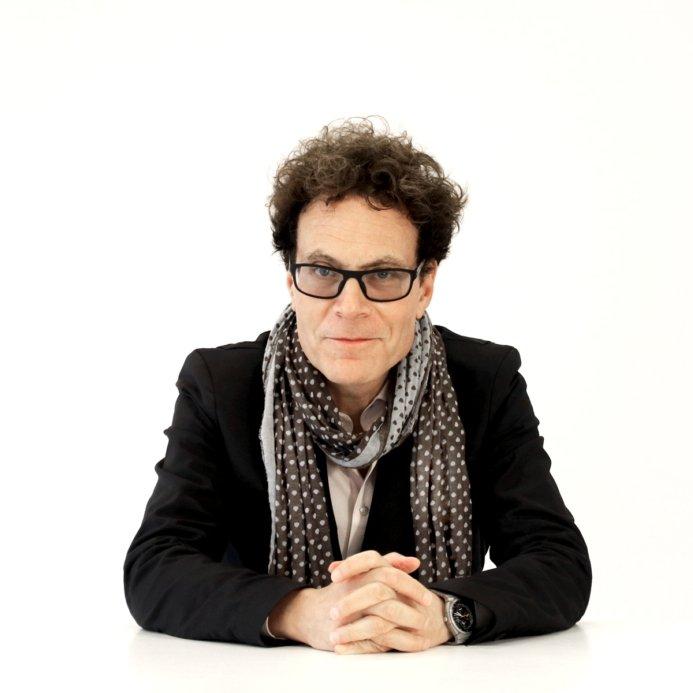Manuel DeLanda and Sanford Kwinter in conversation

Manuel DeLanda: “Assemblage Theory and Ethics” — The 17th century philosopher, Baruch Spinoza, introduced a distinction between morality and ethics, which could serve as a guide for a contemporary ethical approach to environmental problems. But its application to social problems requires that we abandon the distinction between "the individual and society" and think instead in terms of communities, organizations, cities, and other concrete forms of social agency.
ABOUT MANUEL DELANDA
Manuel DeLanda is an artist and philosopher. Between 1975 and 1982 he was an independent filmmaker. His films were selected for the Whitney Biennial in 1978 and had one man shows at Anthology Film Archives (1978), Collective for Living Cinema (1980), Millennium (1981). More recently he has resumed his filmmaking career, showing his new work at Anthology (2015) and Laboratorio Alameda, in Mexico City (2017).
In 1982 he became a computer programmer and independent researcher in cognitive and computer science. Research on the sociology and history of computer science led to the writing of “War in the Age of Intelligent Machines”, published in 1991, on the military origins of computer technology. Since, he has published seven more books, including “A Thousand Years of Nonlinear History” (1997), “Intensive Science and Virtual Philosophy” (2002), “A New Philosophy of Society” (2006), “Philosophy and Simulation” (2011), Philosophical Chemistry (2015) and Materialist Phenomenology (2021).
He is currently retired but he has taught in the architecture departments at Princeton University, University of Pennsylvania, and Columbia University.
ABOUT SANFORD KWINTER
Sanford Kwinter is a philosopher, writer, and editor. Equipped with a distinctive transdisciplinary approach that draws from science, technics, and the arts, he has written on design, technology and nature and helped direct generations of designers in their creative exploration of cognition, subjectivity, cultures, and environments to expand the concept of design as a transformative act integral to the dynamics of life.
He is currently Professor of Science and Design at the Pratt Institute in New York and has previously taught at MIT, Harvard Design School, Columbia, and Rice universities as well as at the Architectural Association in London and the University of Applied Arts in Vienna. He holds a doctorate in comparative literature from Columbia University.
Kwinter was co-founder and long-time editor of Zone Books and the influential journal ZONE. He was a participant in the series of cross-cultural conferences on the condition of architecture at the end of the millennium convened by ANY corporation throughout the 1990s. He is the author of over a hundred and fifty articles and essays. His books include Architectures of Time: Towards a Theory of the Event in Modernist Culture (MIT Press, 2001), Far From Equilibrium: Essays on Technology and Design Culture (Actar, 2008), and Requiem: For the City at the End of the Millennium (Actar, 2010).


